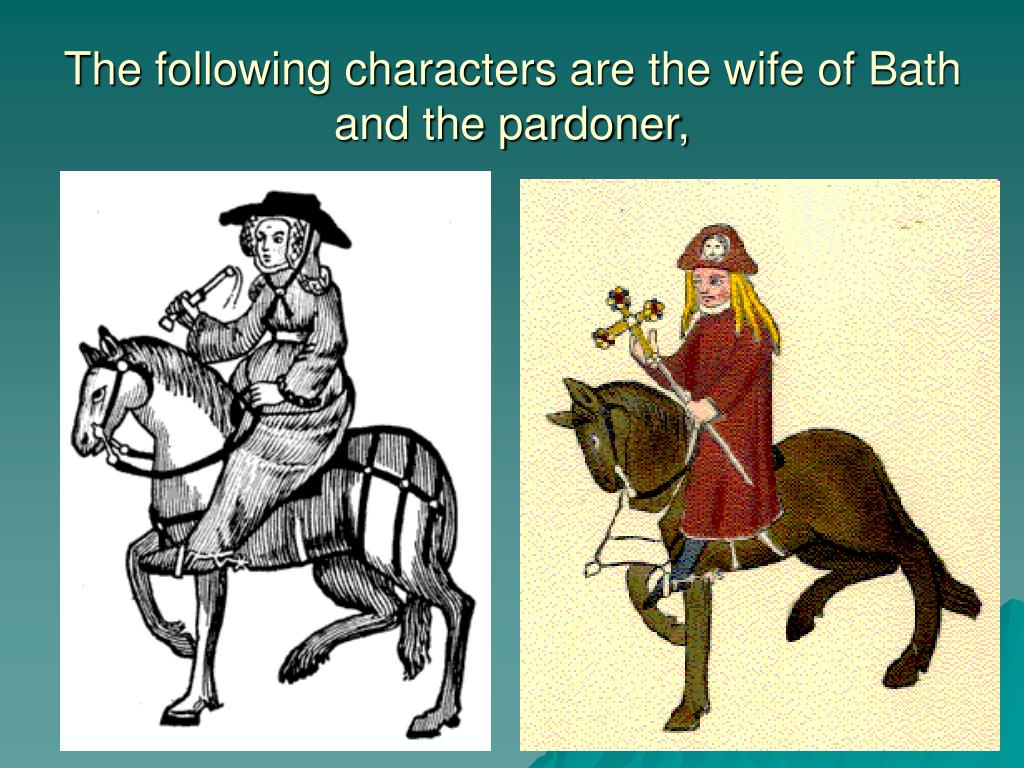

The Pardoner then proceeds with the tale itself, which is a deception as well. He is also the only pilgrim to acknowledge his shortcomings – he knows he is a con artist and liar, and in his tale’s prologue freely admits this in both words and actions. ” The Knight is grand, the Wife is pretty, but the Pardoner is downright ugly. The Narrator also spends a bit of time describing the different relics and showing the truth of what each relic really is however, there is a point in his negative description of both the physical and moral aspects of this character. Yet, “I trowe he were a gelding or a mare,” is hardly non-judgmental (97. His is the characterization that comes closest to making a judgement call – in most cases, the judgement is left to the reader. In the beginning, the Narrator describes The Pardoner in some quite undesirable terms. As a whole, Chaucer effectively uses this character of The Pardoner to point out some of the more foolish and deceptive aspects of other characters in the Tales as well. These are good points, but there s another deception the Pardoner plays, and gets caught: his sermon is a direct chastisement of the Host, who is not pleased by this. In his tale, deception by the rioters leads to the death of all three. Deception is another topic addressed by the Pardoner: he comes right out and says that he is a con artist, and that he is out to take people’s money. The exemplum of his sermon describes three fools who go foolishly seeking death, then find it in a large amount of gold. He talks of gambling, taking bets and the like, and of swearing. He describes gluttony in general, then specifically wine. And if they do that, then the Host has served his most important purpose.There are several types of foolishness being described in the Pardoner’s Tale itself. But those very wrong interpretations make us, the readers, think more about what the tales really do mean. It's doubtful that the Host is an ideal responder, since his interpretations of the tales are often so off-base. What do we mean by that? Well, the Host is the pilgrim we most often see responding to the tales, which makes him kind of a mirror image of us, the reader, who are responding to them, too. With the Host, The Canterbury Tales have a built-in audience. At these times it's like the Host's strong emotions and desires get the better of him – he simply can't contain his hilarity at the Cook's drunken state, or his righteous anger at the Pardoner – and prevent him from fulfilling his goal of promoting merriment. Take that incident with the drunken Cook, for example: the Host is the one who calls him out for drunkenness in the first place! Or look at the moment when the Pardoner tries to foist off his fake relics on the pilgrims: there, the Host responds with outrage and anger, necessitating the Knight's mediation to avoid conflict. But sometimes, he creates as many problems as he solves. Since his goal is to keep all the pilgrims having a good time, it makes sense the Host tries to be the dispeller of conflict among them. He's the one who tells the Friar to stop ribbing the Summoner, for "in company we wol have no debaat" (Friar's Prologue 24), or warns the Manciple to stop insulting the Cook lest his insults rebound upon him. The Host often tries to play the role of peace-keeper among the pilgrims. The validity of the Host's conclusions is questionable, though, which makes us question his intellect, though not his enthusiasm. He's also quick to draw lessons from the tales he hears, declaring that the Physician's tale proves that Nature's and Fortune's gifts are death to every creature, or that the Merchant's confirms lots of negative stereotypes about women. So convinced is he of their power that, after hearing the Physician's mournful tale, he declares the only thing that will save his heart from pain is "a draughte of moyste and corny ale / or but I heere anon a myrie tale" (Pardoner's Introduction 29 – 30). The Host takes all his tales extremely seriously, becoming very emotionally involved in them. The Host just wants to have a good time, which is why he gets so upset with pilgrims like the Monk or the Physician, who tell stories about tragedy and death, and so delighted with those like the Nun's Priest's, whose stories are comedies. We get the impression that the Host is a jolly fellow – large, with piercing eyes, fit "to been a marchal in a halle" (General Prologue 754), which is in fact what he becomes as the self-styled director of the pilgrims' merriment.

The Host is the major mover and shaker of the frame story of The Canterbury Tales, since it's he who proposes the tale-telling game and directs it on the way to Canterbury.


 0 kommentar(er)
0 kommentar(er)
